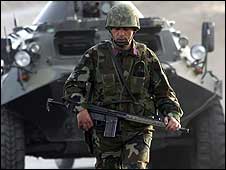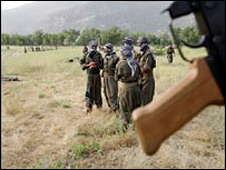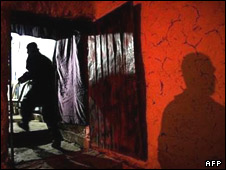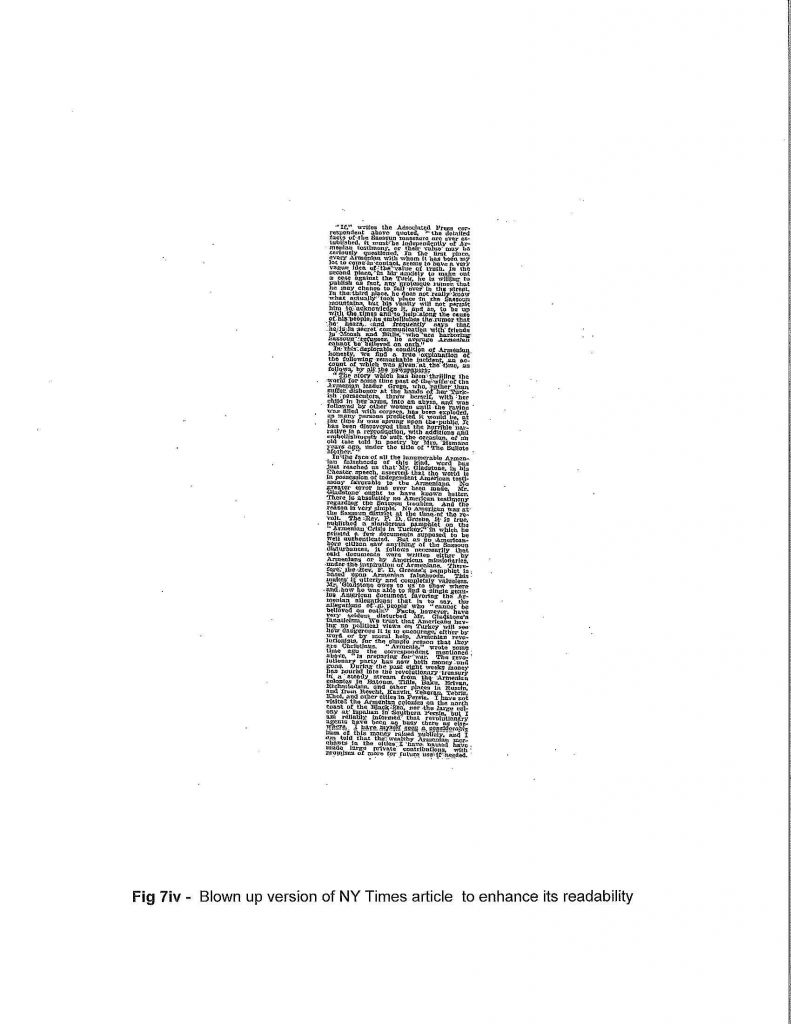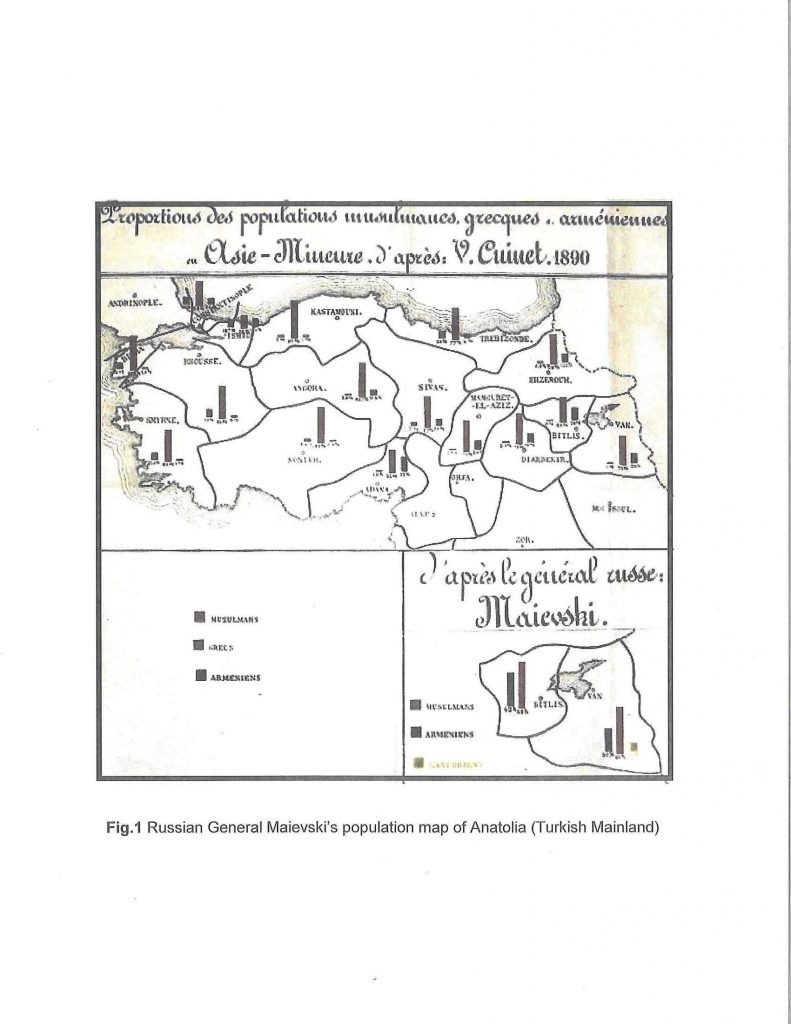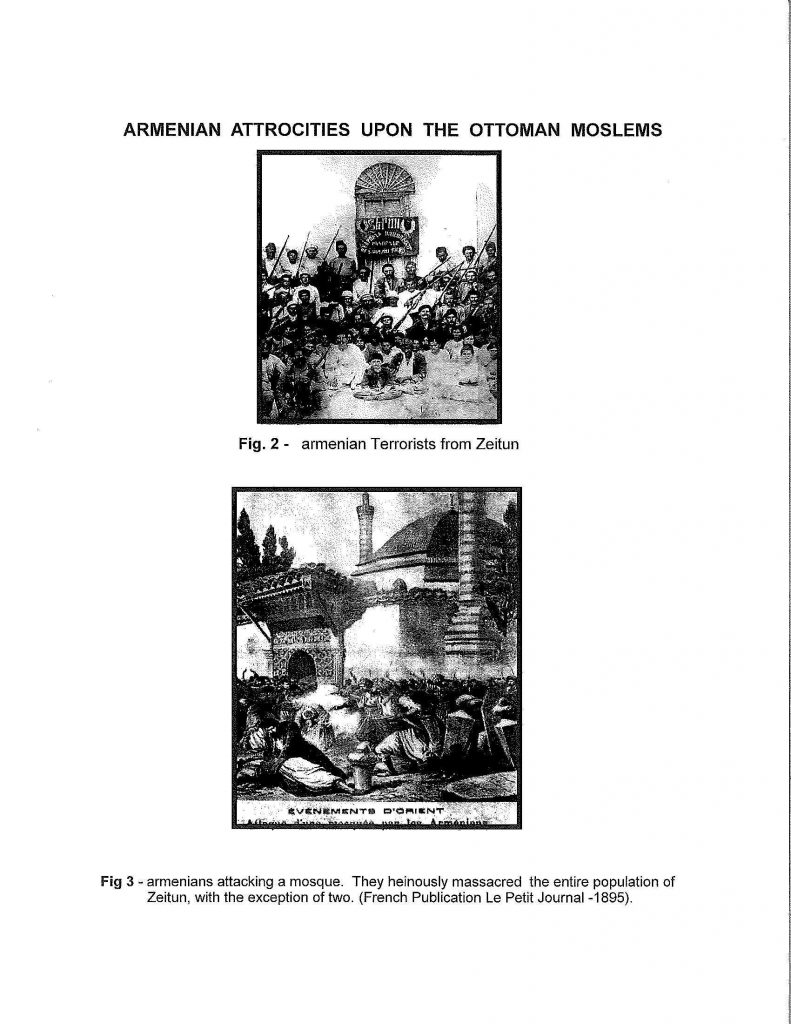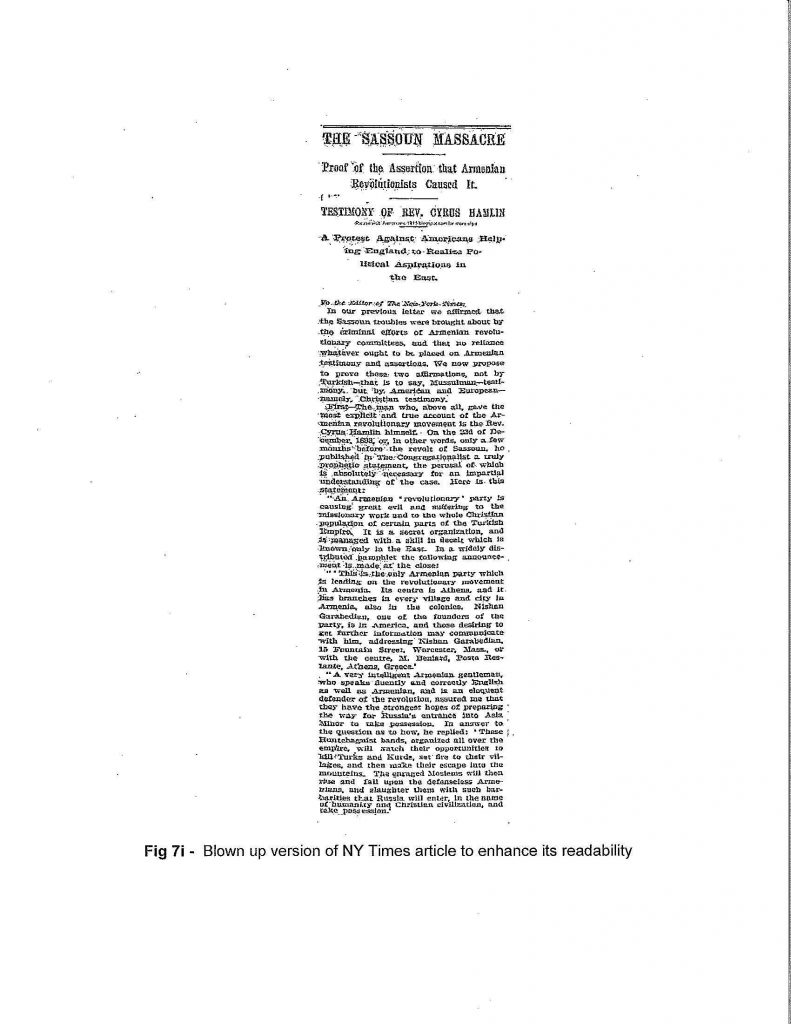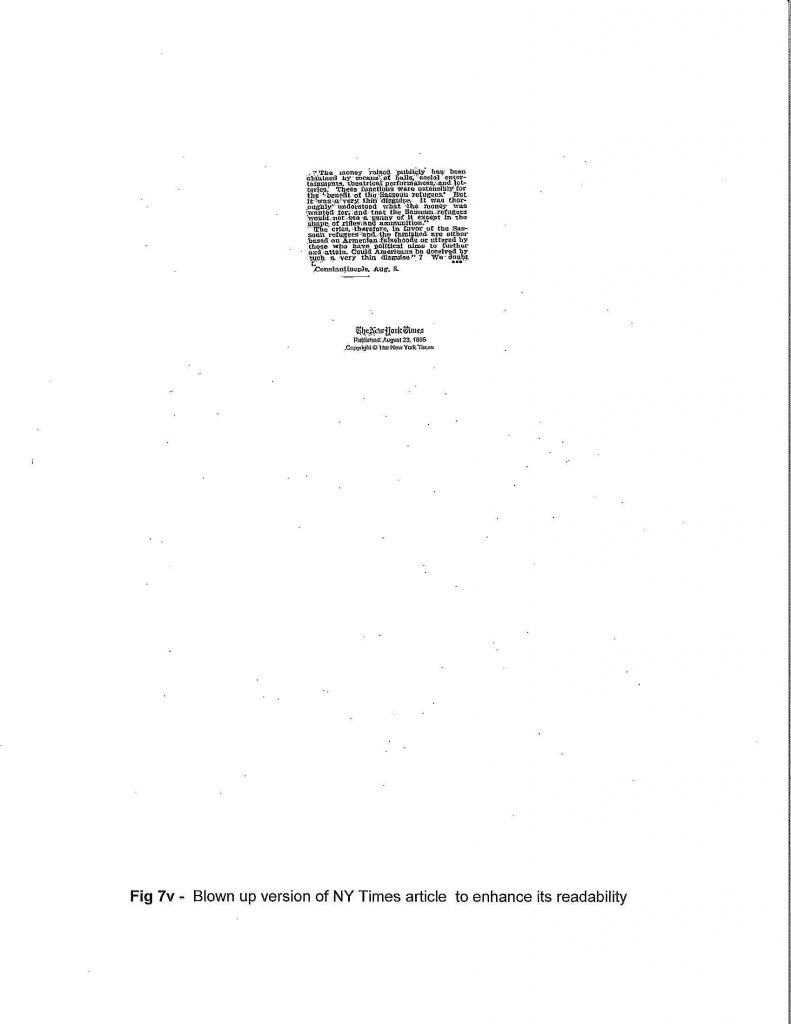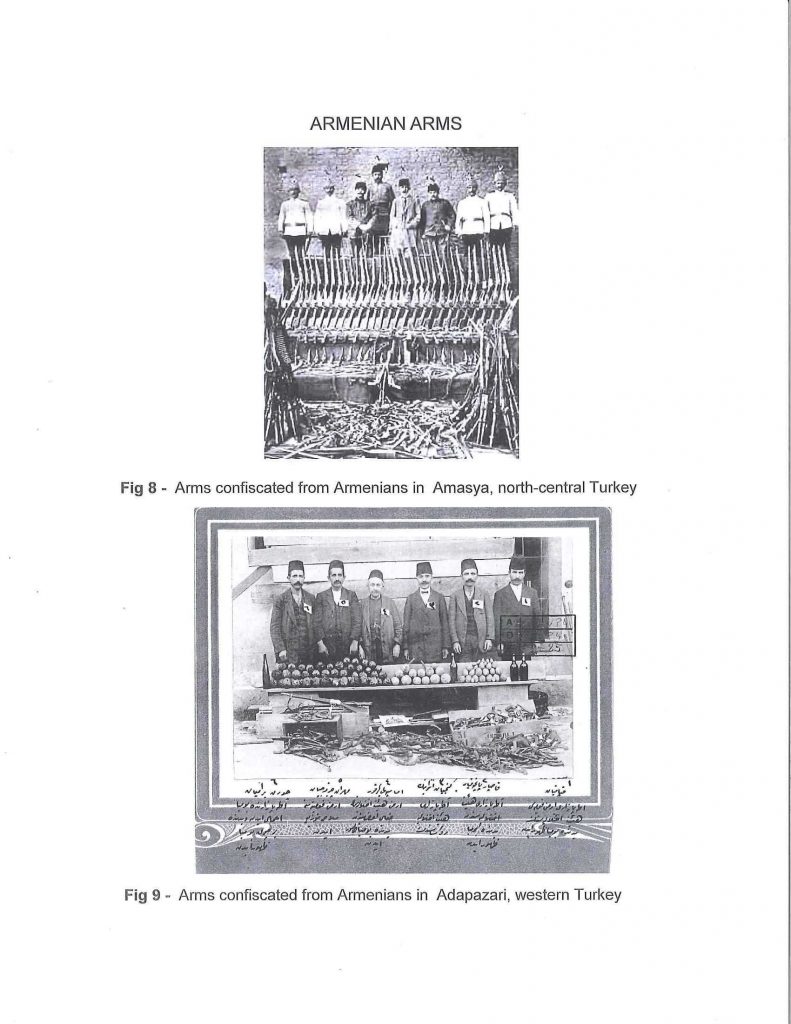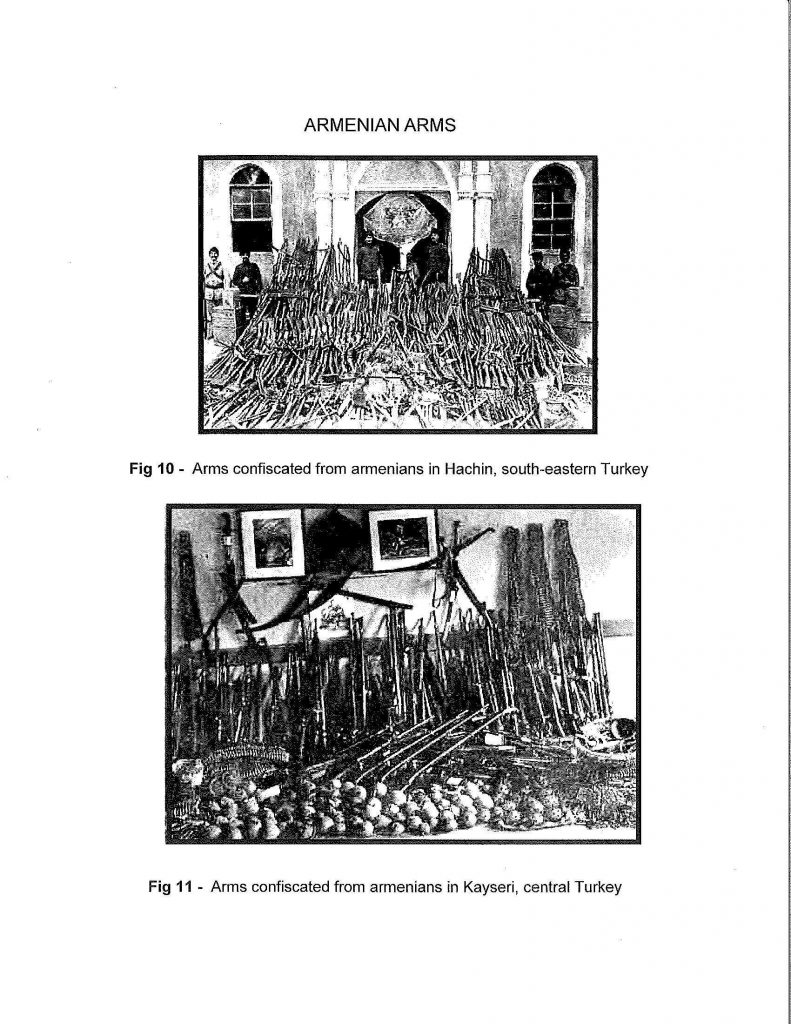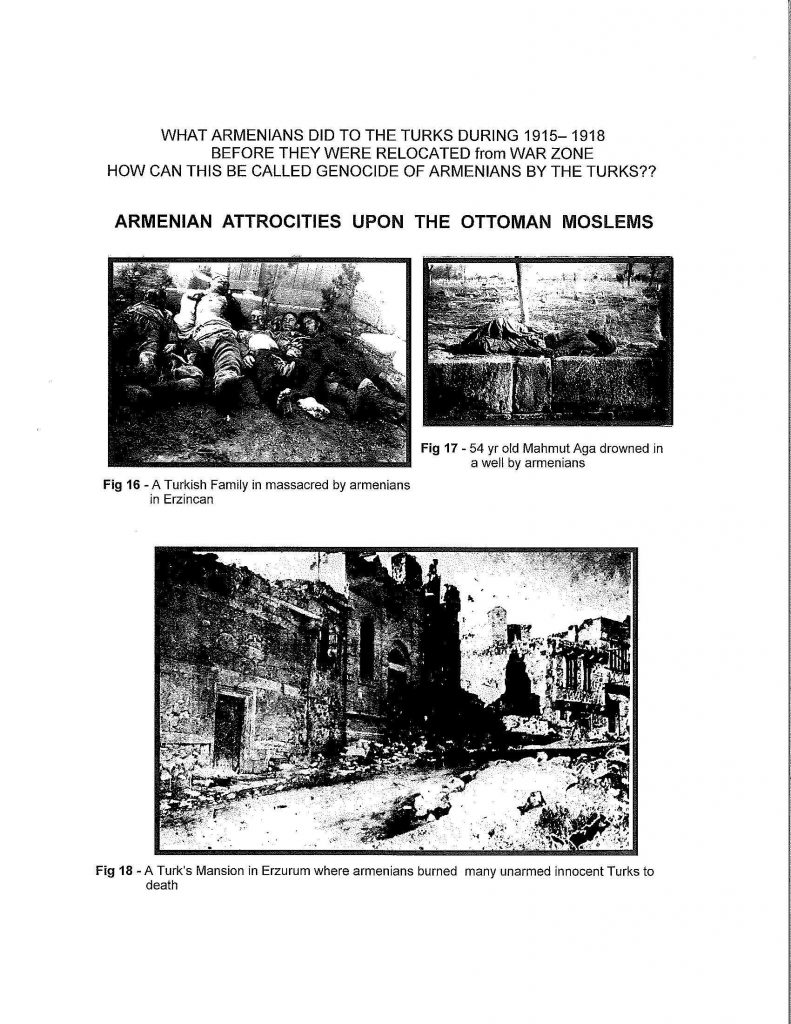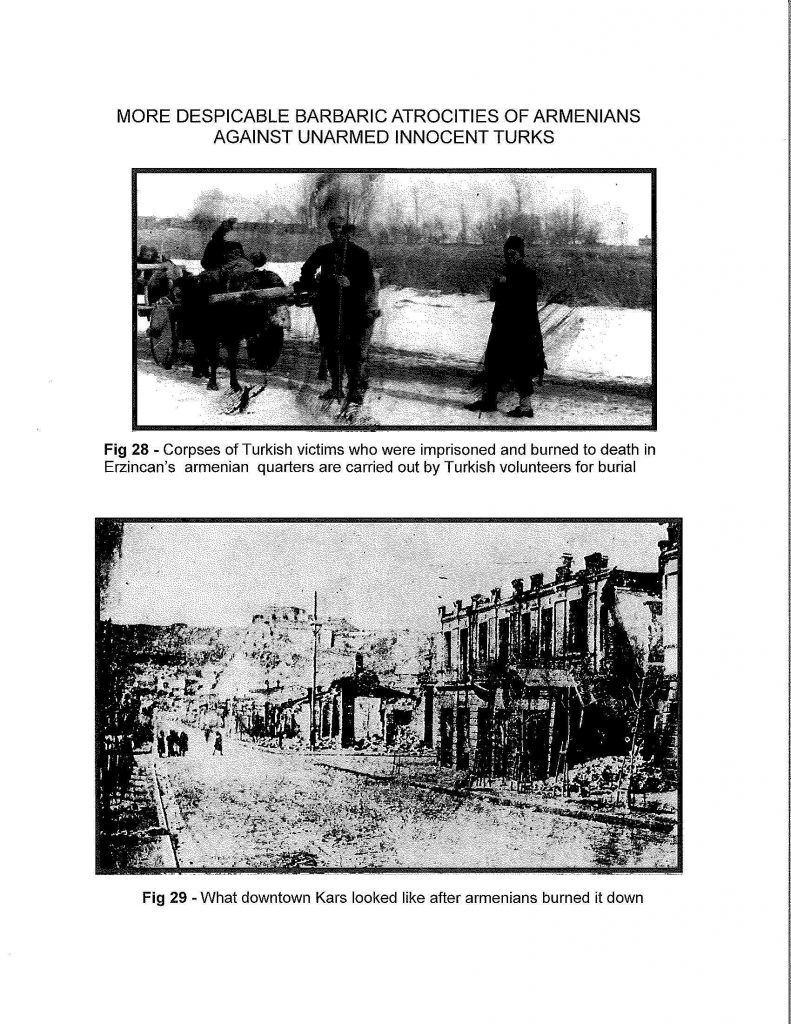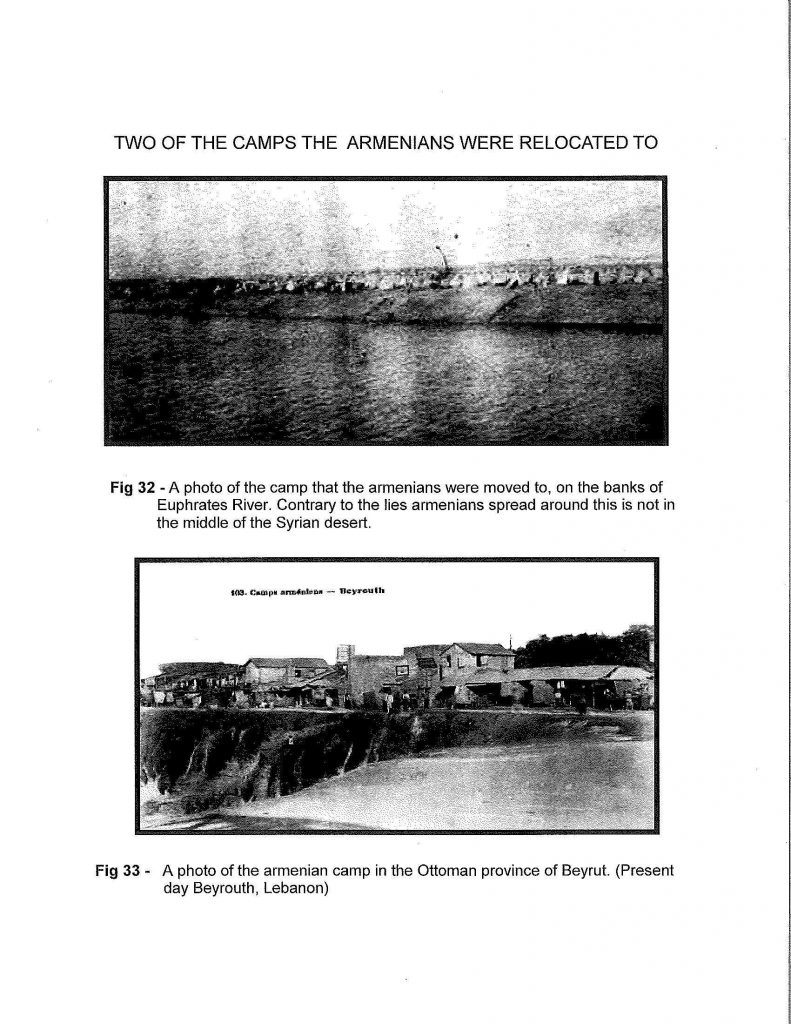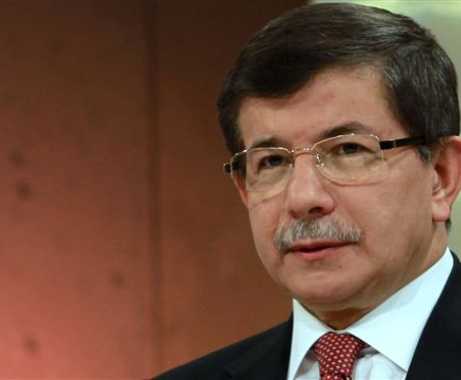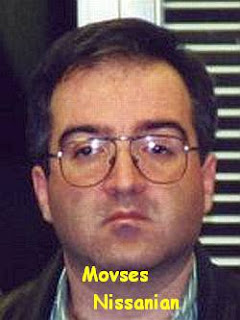
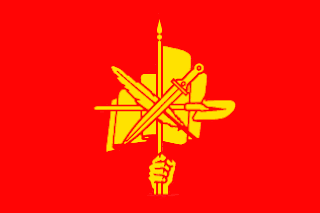
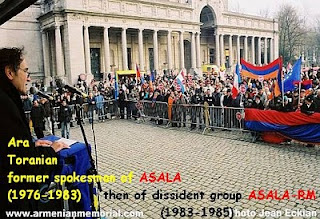
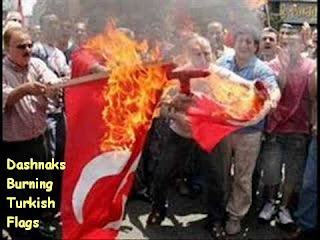
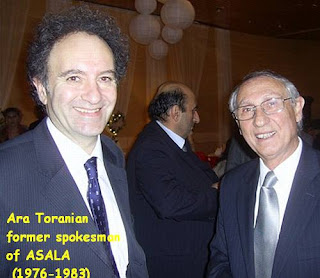
“We live in fact for some moments, intense and special; the rest of the time, we wait these moments.”
Edgar Faure (1908-1988), French lawyer and statesman.
On April 27, the Lyon’s tribunal declared Movsès Nissanian, municipal counselor of Villeurbanne (biggest city of Lyon’s suburb) member of Armenian Revolutionary Federation (ARF-Dashnak), guilty of “public insult against an individual” (me) and sentenced him. As a preliminary information, I have to say the following:
— Lyon is comparable to Boston in USA for the influence of Armenian nationalism, and the ambiance in Villeurbanne could be compared, by some aspects, with New Jersey’s ambiance. The mayor and former MP, Jean-Paul Bret, has some common points with US Senator Robert J. Menendez.
— I received no support from Lyon’s Turkish associations for the costs, or any other aspects, of my court case.
— As a MA student in history, I sued Mr. Nissanian to defend my dignity and the freedom of speech, against the political misuse of history.
I) Background: the facts, the procedure, the collateral incidents
.
February 15, 2008. During a meeting about the Sirma Oran affair, Movsès Nissanian says that I am exactly like “those who sent Jews to Auschwitz” during the WWII. He says that because I wrote an article, published on the Web, criticizing the mayor of Villeurbanne (who harassed Sirma Oran by his questions about the so-called “genocide”) and the ARF (for his crimes of the past, including terrorism and massacres of Muslims and Jews). I signed the article by initials only, to remain quiet, but my name was revealed on the free-access forum of armenews.com, first French-Armenian Web site. His editor-in-chief is Ara Toranian, former spokesman of ASALA (1976-1983) then of dissident group ASALA-RM (1983-1985).
May 15, 2008. I file a complaint in Lyon’s tribunal.
June 2008. The Lyon’s prosecutor opens a criminal investigation.
October 21, 2008. I file a complaint in the police station of my Parisian district, against vitriolic messages who insult and defame me, on the forum of armenews.com. I sent before several e-mails to Mr. Toranian, but he did not respond, so I take my promise to complaint. Less than seven hours after that, Mr. Toranian destroys for ever his dear free-access forum. Even some of his friends asked to him, before my complaint, to close this forum, because it was full of racist, anti-Semitic and anti-homosexual messages, several with direct incitation to physical violence, including murder.
December 2008 (I do not remember the precise date). I give to the chief of Lyon’s investigative magistrates, in charge of my complaint, the record of Mr. Nissanian’s statements during the meeting of February (Jean-Patrick Martz, husband of Sirma Oran, was in the room and recorded the speeches). The record is later authenticated by an expert, because a demand of Mr. Nissanian.
July 31, 2009. The procedure is completely finished. Both the chief of investigative magistrates and the deputy prosecutor ask that Mr. Nissanian be sent in front of Lyon’s tribunal for “public insult against an individual”.
September 9, 2009. The trial is fixed to November 3.
End of October 2009. Mr. Nissanian’s lawyer, Xavier Vahramian, files his written conclusions: 18 pages, plus 33 pieces, mostly about the so-called “genocide”; Mr. Nissanian lawyer argues that since I “denied the genocide”, I am guilty of “provocation”, as defined by law, and that, as a result, Mr. Nissanian must be not sentenced. He adds that “ARF did never use terrorism” and even that “ARF has always condemned terrorism”. The defense lawyer filed nothing during more than one year of investigation. It is now too late to make an appropriate response. Me and my lawyer ask that the trial be postponed; the tribunal accepts and fixes the date to January 5.
One can notice that the accusations of war crimes against Muslim and Jewish civilians, perpetrated by ARF members from 1914 to 1922, were never challenged, or even mentioned, by Mr. Nissanian or his lawyer, during the whole procedure.
November 3, 2009. Oran vs. Bret trial. The ambiance is terrible. I am scolded upset when I am leaving the tribunal’s room, by fanatic young Dashnaks (it is fair to add that few others young Dashnaks were unaggressive and expressed their disapprobation to such an aggressive attitude). I prevent insult and assault only in asking: “Do you want take the place of Mr. Nissanian?” I file a “main courante” (complaint without legal consequence) in the police station of my Parisian district, in coming back to my home.
November-December 2009. In French National Library, I search extensively in the archives of Haïastan, official newspaper of young Dashnaks and France-Arménie, monthly edited by Dashnaks of Lyon; I photocopy many articles supporting stridently terrorism. During the same time, I write a draft of response, about Dashnak crimes (terrorism of 1890’s and 1900’s years; terrorism of interwar period; collaboration with Nazism; terrorism of 1970’s and 1980’s; celebration of terrorism until today) and about the allegations of “genocide”, using writings of Feridun Ata, Donald Bloxham, Gwynne Dyer, Edward J. Erickson, Yusuf Halaçog(lu, Hilmar Kaiser, Guenter Lewy, S,inasi Orel and Sürreya Yuca, Stanford J. Shaw, Philip H. Stoddard, Malcom E. Yapp and others. My lawyer makes with this draft two appendixes for the revised version of his written conclusions (the first was established in October 2009). Written statements of Türkkaya Ataöv, Mumtaz Soysal and Norman Stone are also filed. I would like express my thanks to these professors.
January 4, 2010. Ara Toranian publishes on his site armenews.com a defamatory article against me, saying that Movsès Nissanian was right in saying that I have the same mentality of those who sent Jews to Auschwitz. Immediately, I sent an e-mail to him, threatening to make a new court case. Less than one half-hour, he answers that to prevent any misunderstanding about his intentions, he is deleting the article (and keeps his promise).
II) The trial of January 5, 2010, and its consequences
The trial happens in front of the same tribunal than for Oran vs. Bret case. However, the ambiance is much more quiet for this trial that on November 3. Not a single young Dashnak, and less activists in general. All are calm — excepted one, expelled by the president in the beginning of my statement. I speak about terrorism: nobody screams. I say that Mr. Toranian was president of the “National Armenian Movement for ASALA” (I say that because Mr. Nissanian used one of his articles for his defense); Mr. Toranian is three or four meters behind me; he says absolutely nothing. The president asked to everybody to be short, so I say almost nothing about “genocide” claims, just quoting Hilmar Kaiser’s praising of Yusuf Halaçog(lu.
Movsès Nissanian’s lawyer asks few question to me, but no one about history. My lawyer asks to his colleague of defense: “You asserted in your written conclusions that ‘ARF has always condemned terrorism’; did you file a single piece proving that?” No reply. My lawyers asks then to Mr. Nissanian if he regrets to have used such words against me. The defendant answers that yes.
Later during the trial, the president says: “the tribunal has not to decide between historical thesis”.
As usual in French procedure, the last word is for the defendant. In his short final declaration, Mr. Nissanian says: “I reprove these acts of terrorism” used by ARF and ASALA.
Mid-January 2010. Clash in the staff of France-Arménie, which published my account of trial on its Web site. Readers are chocked by what Mr. Nissanian said about terrorism, and call him a “coward”, a “shame” for ARF. Both my account and the comments are finally deleted, and the editor-in-chief, the passionately anti-Turkish racist Laurent Leylekian is furious because this incident.
III) The judgment: some commentaries
It is pronounced on April 27. The full text is available here:
Even more quiet ambiance than on January 5. No one Armenian media announced the date of the judgment. The tribunal rejects the excuse of provocation, arguing that such an excuse needs to be a direct and personal attack against the person who insult, and must be made few time before that the insult happens. No allusion to “genocide” claims in the discussion of the excuse of provocation. Mr. Nissanian is declared guilty of insult against an individual and sentenced. The president found a judgment of the Cour de cassation (French Supreme court) of April 1908 (!), saying that there is a difference between a “fault” of victim (excessive imprudence in the expression), which decreases the sentence, and the excuse of provocation, which prevents a sentence. In this case, the tribunal argues that it is an unneeded strident formulation to quote Gaïdz Minassian’s critical analysis about Dashnak terrorism (ARF “elevated terrorism until a saint method”, he writes in his book “Guerre et terrorisme arméniens”) in a context which concerns not ARF, but its Villeurbanne’s chapter, not involved in terrorism or in glorification of terrorism. I wanted not to libel this section, but to show the contrast between the repeated ask to Sirma Oran about “genocide” recognition (asks made by the Villeurbanne’s mayor) and the complete absence of ask of “recognition” about crimes perpetrated by ARF; but I did not insist of this point, before and during the tribunal, because I did not know the decision of 1908, and because my lawyer did not think to it.
So, Mr. Nissanian is sentenced, but to slight punishment: 300 € of suspended fine; 90 € as costs of judgment’s registration; 500 € for me. The president says that “it is a warning” to him.
Despite the slightness of the sentence, this judgment is terrible for ARF. The “genocide” claims are not accepted, not even discussed; the tribunal confirms by this way that he does not want “decide between historical thesis”.
The basic accusation of terrorism against ARF is validated; the judgment says that I mentioned “the acts attributable to ARF”, referring, among others, to terrorism. Even the use of jurisprudential notion of “fault” is terrible for ARF: the fundamental contradiction between the Dashnak terrorism on one side, the Dashnak desire of respectability, not the say the Dashnak arrogance in pretending to say what is good, on the other side. Mr. Nissanian escaped to a severe sentence only in substantiating his claims to be not favorable to terrorism, i.e. in saying “I reprove these acts of terrorism”; so, he broken ties with a considerable part of Dashnak activists. But the worst is perhaps that this defeat happened in front of the same tribunal than Mr. Bret’s success against S?rma Oran.
When I am writing this text, not a single Armenian Web site or forum has been mentioned the judgment; so, even is the sentence is slight, it seems sufficient for a strong symbolic effect.
As a result of two years of I renounce to nothing and regret nothing; I express my thanks to the thirty persons who I did not know before the judgment, and who sent to me their congratulations for the success in front of Lyon’s tribunal.
Many other people could make a successful court case, in France as well as in other countries of Western Europe, against Armenian nationalists who use insult or defamation as a political instrument — frequently with more viciousness and perseverance than Mr. Nissanian; one can hope, at least, that I will not remain alone to do that for a long time.
Maxime Gauin
Paris, May 2, 2010
Google Translation Of Maxime gauin’s Article in
The Theodor Mommsen Villeurbanne
A misunderstood genius: Jean-Paul Bret
By Mr. G, lundi11 February 2008
“Hypocrisy is a tribute that vice pays to virtue. “
Francois de La Rochefoucauld, Maxims.
The mayor of Villeurbanne, Mr. Bret is an extraordinary perspicacity. He decided to joint list with the Greens. He asked one of the candidates nominated by the party to “recognize the genocide of Armenia. This person has a Turkish name, she would have called Jeannine Smith, the same question he asked was, no doubt. This person runs. It is not enough for Mr. Bret: he asks her to repeat the “Armenian community” of Villeurbanne. She runs again. It is still not enough for Mr. Bret, which then requires a “recognition” writing.
Hunting “revisionist”
For Mr. Bret, anyone denying that the plight of Armenians in 1915-1916 could be a genocide, he said, “Holocaust denier” – even if this dispute does not affect the individual suffering and the magnitude of various crimes. The slightest suspicion that subject can cause the most severe sanctions, the most exemplary. Mr. Guenter Lewy, professor emeritus of political science at the University of Massachusetts, who fled Nazi Germany as a teenager with his family in 1939, is “revisionist”.
“The three pillars of the Armenian claims, to classify the losses suffered during the First World War as genocide fail to substantiate the charge that the Young Turk regime organized the massacres. Other alleged evidence of a plan of annihilation are no better.
Apply or not the term genocide to events which occurred here nearly a century may seem unimportant to many historians, but this application – or not – keeps a great political importance. The Armenians and their supporters, such as Turkish nationalists have made claims and defended their cause at the cost of simplification of historical reality, complex, and by ignoring crucial evidence that would lead to a more nuanced view of the past. Scholars have based their professional position on previous work, often ignoring dishonest interpretations of primary sources as they behaved. Against the backdrop of major policy issues, both sides have sought to silence opponents of their views, and to prevent a confrontation of all arguments in this case [1]. “
Historians specializing in Ottoman history, and whose fame is international, so all are “deniers”, including MM. Bernard Lewis (Jewish), Stanford Jay Shaw (of the Jewish faith), and Gilles Veinstein (born in 1945 in Paris, in a Jewish family).
“During the rest of the [First World War], much of the Armenian population was killed or fled. […] The Armenians say that these deaths are the result of a policy of genocide implemented by the Ottoman government. […] The minutes of the council of ministers did not confirm this, rather they show great willingness to investigate and improve a situation where six million people (Turks, Greeks, Arabs, Armenians, Jews and others) were killed by a combination of rebellions, attacks by bandits, killings and massacres-cons, famine and diseases, compounded by sudden foreign invasions, in which all peoples of the empire, Muslim and non-Muslims, have counted the victims and criminals. […] After the Revolution [Russian], a truce was signed between the Republic and the Ottoman Empire, but the Armenian units then began a massacre of Turkish peasants generalized still resident in the South Caucasus and eastern Anatolia, where were more than 600,000 refugees, in addition to 2,295,705 Turks living in the provinces of Erzurum, Erzincan, Trabzon, Van and Bitlis after the war [2]. “
“1) There was no hate campaign aimed directly at the Armenians, no demonizing comparable to European anti-Semitism.
2) The deportation of the Armenians, although widespread, was not total, and in particular it did not apply to the two main cities of Istanbul and Izmir.
3) The Turkish actions against Armenians, although disproportionate, were not born from nothing. The fear of a Russian advance into the eastern Ottoman provinces, knowing that many Armenians viewed the Russians as liberators against the Turkish regime and awareness of Armenian revolutionary activities against the Ottoman State, all contributed to create an atmosphere of anxiety and suspicion, aggravated by the situation becoming more desperate by the Empire and the neuroses – oh – usual time of war. In 1914, the Russians formed four large Armenian volunteer units and three others in 1915. These units accounted for many Ottoman Armenians, including some well-known public figures.
4) The deportation for criminal reasons, strategic or otherwise, had been practiced for centuries in the Ottoman Empire [3]. “
“Second point: there were also many casualties among Muslims throughout the war, the fighting but also by actions against them by Armenians, in a context of ethnic and national rivalry. If there are victims forgotten, are those, and the Turks of today are right to denounce the bias of Western opinion in this regard. Is it because there were only Muslims that are neglected, or because they implicitly consider that the ultimate success of their peers deprives them of the status of martyrs? What view would carry us so on the same facts, if things had turned out differently, if the Armenians were eventually based on the rubble Ottoman state in Anatolia sustainable?
But the last point is crucial, debate, its legal and political implications, is whether the massacres perpetrated against the Armenians were the order of the Young Turk government, if the transfers have been a lure for systematic extermination company, implemented in different ways, but decided, planned, RC governmental level, or if the Young Turks were only guilty of recklessly triggered movements which ended in bloodshed. Merely asking the question may seem absurd and outrageous. It is true that state involvement is a prerequisite for the complete application to the Armenian tragedy of the term genocide, as it was coined in 1944 and defined by the Nuremberg Trials and the United Nations Convention of 1948.
It must however admit that one has so far no evidence that government involvement [4]. “
Similarly, are counted among the “deniers”, Professor Eberhard Jäckel, one of the leading names of Nazi [5], the UK government [6], the German government [7], the Spanish government, Israeli Parliament [8], the Bulgarian Parliament [9] and the Nobel Peace Shimon Peres. [10]
Some disgruntled say that Mr. Bret has led a miserable political operation, whose methods disturbingly reminiscent of inquisitorial trials: the repentant heretic in public, and is excluded from the community if it persists in the heresy. Daring to proclaim the truth loud and clear: Mr. Bret is a genius – a misunderstood genius. Although he never made a study of history (like many other “specialists” self-appointed Ottoman history, such as Yves Ternon surgeon), he managed to unmask the “denial,” where is: in scientific research, recognized as such, and the governments of key allies of France. This genius can not be praised enough.
Dear friends of Mr Bret
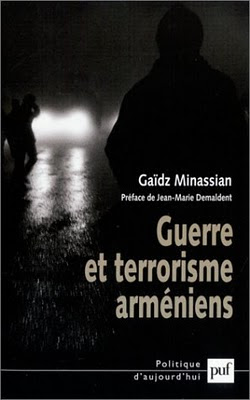
Think! He is already struggling Turkish hydra, but it must also be wary of his friends. Mr. Bret indeed maintains the best relations with the local Armenian Revolutionary Federation (USA-Dashnaktsutiun). For, as amazing as it sounds, this foreign party (or to be absolutely correct its youth branch) has a section villeurbannaise, and also a section of Paris, Lyon, Marseille, Nice, and another in Décines, situated, as Villeurbanne, a suburb of Lyon. If a reader knows a European Turkey section of the PS in the suburbs of Munich, Milan, and Edinburgh, he would write to the association, which will transmit.
The heroic and visionary Mr. Bret managed a tour de force: to remain an impeccable democrat, while the friend of the local members of the FRA. Indeed, the FRA has “elevated to the rank of terrorism sacrosanct practice [11]. The list of major terrorist acts in the ARF include:
the first hostage of the contemporary era, which took place at the Ottoman Bank (Istanbul), August 26, 1896, the stated purpose (and succeeded, unfortunately, beyond all hope) promote violence antiarméniennes, a pretext for intervention further increased the great powers in the Ottoman Empire [12];
the failed assassination attempt against Sultan Abdul Hamid II in 1905, which killed the founder of the Dashnaktsutyun, Christapor Mikaelian, who died while handling a bomb he was preparing [13];
the assassination of Bedros Kapamaciyan Mayor Armenian Van, 10 December 1912 [14];
the massacre of many Muslim civilians between 1914 and 1922 [15];
the assassination of Archbishop Leon Tourian, head of the Armenian Church in the Americas, New York, December 24, 1933 [16];
a series of attacks between 1973 and 1985, including the suicide bombing of Lisbon, July 27, 1983, commemorated each year by the FRA [17];
the twin bombings of August 1, 1993, against Viktor Polianitchko (Russian officer) and General Ossetian Safonov [18] who won, the FRA to be prohibited in Armenia until the election of Mr. Kocharian, a of his friends, as President of the Republic [19].
The long record of party Dashnak not limited to these terrorist activities, it also includes the pro-Nazi activism of some of its most prominent members, never disavowed activism, but rather glorified, until today, by the direction of FRA. Hairenik, party organ Dashnak United States, has shown its unwavering support and full support to Nazi ideology. The edition of September 17, 1936 states as follows:
“Then came Adolf Hitler, after fighting worthy of Hercules. He spoke of race in the pulsing heart of the Germans, making the fountain spring of the national genius. “
A month earlier, on August 19 exactly Hairenik not hesitate to write:
“It is sometimes difficult to eradicate these harmful [Jews], when they have contaminated up to the root like a chronic illness, and when it becomes necessary for one people [in this case the Germans, or rather Nazis] to eliminate an uncommon method these attempts are regarded as revolutionary. During such surgery, it is natural that the blood flows. Under such conditions, a dictator emerges as a savior. “
Other members of the FRA are not content to support the Third Reich by words: they gave him the gift of their person. Thus General Ganayan (or Kanayan, according to a transcript of the Armenian alphabet in Latin script), better known by his nickname, Dro, he formed and led the 812th battalion of the Armenian Wehrmacht, the main fact of weapon was the roundup of Jews in occupied Soviet Union [20]. Dro is in the mausoleum since 2000, inaugurated by President Kocharian [21]. In an editorial in April 2001, General Dro Hairenik ranks among the “heroes” of the Armenian people [22], thereby demonstrating his perfect continuity with the line of the 1930 pro-Nazi. Mr. Vahan Hovhannesian, candidate of the ARF in the presidential elections in Armenia, also believes Dro as a “hero” [23].
It goes without saying that Mr. Bret has asked all his friends from the USA to recognize and condemn, orally then in writing, all of his crimes. It goes without saying that Mr. Bret is necessarily also “committed” to the “recognition” of the “Armenian genocide” as “recognition” of numerous crimes of the FRA, the 1890s to today.
How? You have not read, heard or seen it in the media, but then not at all? This may be an omission on their part. Just think, a genius like Mr. Bret can not ignore such acts.
[1] Guenter Lewy, “Revisiting the Armenian Genocide,” Middle East Quarterly, Winter 2005.
[2] Stanford and Ezel Kural Shaw Jay Shaw, History of the Ottoman Empire and Modern Turkey, New York / London, Cambridge University Press, Volume II, revised edition, 1978, pp. 315-325 (according to Ottoman documents).
[3] “The explanation of Bernard Lewis,” The World, 1 January 1994.
[4] Gilles Veinstein, “Three questions about a massacre,” The History, April 1995.
[5] “But if we take into account the fact that Turks and Kurds have also deplored the heavy loss, and certainly more than combat due to illness, approximately one third of British soldiers Indians and taken prisoner by the Turks in 1916 have died, all this strongly suggests that no genocidal intent existed. “Eberhard Jäckel,” Genozid oder nicht? “Frankfurter Allgemeine Zeitung, March 22, 2006.
[6] “The evidence is insufficient evidence to convince us that the events should be classified as genocide under the terms of the UN Convention on Genocide of 1948 which, anyway, is not to retroactive application. The interpretation of events in Eastern Anatolia in 1915-1916 is still the subject of genuine debate among historians. “Lady Scott (Foreign Office), statement on behalf of the British Government in the House of Lords, 2001.
[7] “The federal government believes that consideration of massacres in 1915-1916 can not be by definition a matter of history and that it therefore applies only to historical research and both countries are interested in ascertaining the Turkey and Armenia. Response from the German Minister of Foreign Affairs to a parliamentary question in March 2001.
[8] “Israeli Parliament Rejects Alleged Genocide Bill”, Turkish Daily News, March 16, 2007.
[9] “Bulgarian Lawmakers reject Armenian” genocide “claims”, Turkish Daily News, January 18, 2008.
[10] “We reject attempts to create a similarity between the Jewish Holocaust and the Armenian allegations. Nothing comparable to the Holocaust has taken place. What the Armenians suffered a tragedy but not a genocide. Shimon Peres interview with the Turkish Daily News, April 10, 2001.
[Eleven] Gaïdz Minassian, Armenian War and Terrorism, Paris, Presses Universitaires de France, 2002, p. 262.
[12] Francis Georgeon, Abdulhamid II, Sultan Caliph, Paris, Fayard, 2003, pp. 299-300, Stanford and Ezel Kural Shaw Jay Shaw, History of the Ottoman Empire and Modern Turkey, op. cit., pp. 203-205.
[13] Gaïdz Minassian, Armenian War and Terrorism, op. cit., p. 2.
[14] Justin McCarthy, Esat Arslan, Ömer Cemalettin TASKIRAN and Turan, The Armenian Rebellion at Van, Salt Lake City, Utah University Press, 2006, pp. 164-165.
[15] Justin McCarthy et al, The Armenian Rebellion at Van, op. cit., pp. 233-251.
[16] Michael M. Gunter, “Pursuing the Just Cause of Their People. A Study of Contemporary Armenian Terrorism, Connecticut, Greenwood Press, 1986, p. 55.
[17] Gaïdz Minassian, Armenian War and Terrorism, op. cit., pp. 21-114, especially pp. 88-93 on the attack in Lisbon.
[18] “A representative of Boris Yeltsin killed in the North Caucasus”, Le Monde, August 3, 1993; Gaïdz Minassian, Armenian War and Terrorism, op. cit., p. 262. It is true that the two victims have not breached the global humanism, is the least we can write, but they deserved a trial, not an ambush.
[19] The ban was also motivated by the relations between the USA and part of the Russian extreme right, one led by Mr. Zhirinovsky: Gaïdz Minassian, Armenian War and Terrorism, op. cit., p. 241.
[20] Sedat Laçiner, “The Second World War: Armenian-Nazi Collaboration? “The Journal of Turkish Weekly, May 21, 2005. id = 1133
[21] “Dro, became pro-Nazi hero,” L’Humanite, 19 April 1999. See also the official website of the FRA:
[22]
[23]
URL for this article: http://www.turquieeuropeenne.org/article2455.html
© 2004 European Turkey. All rights reserved




